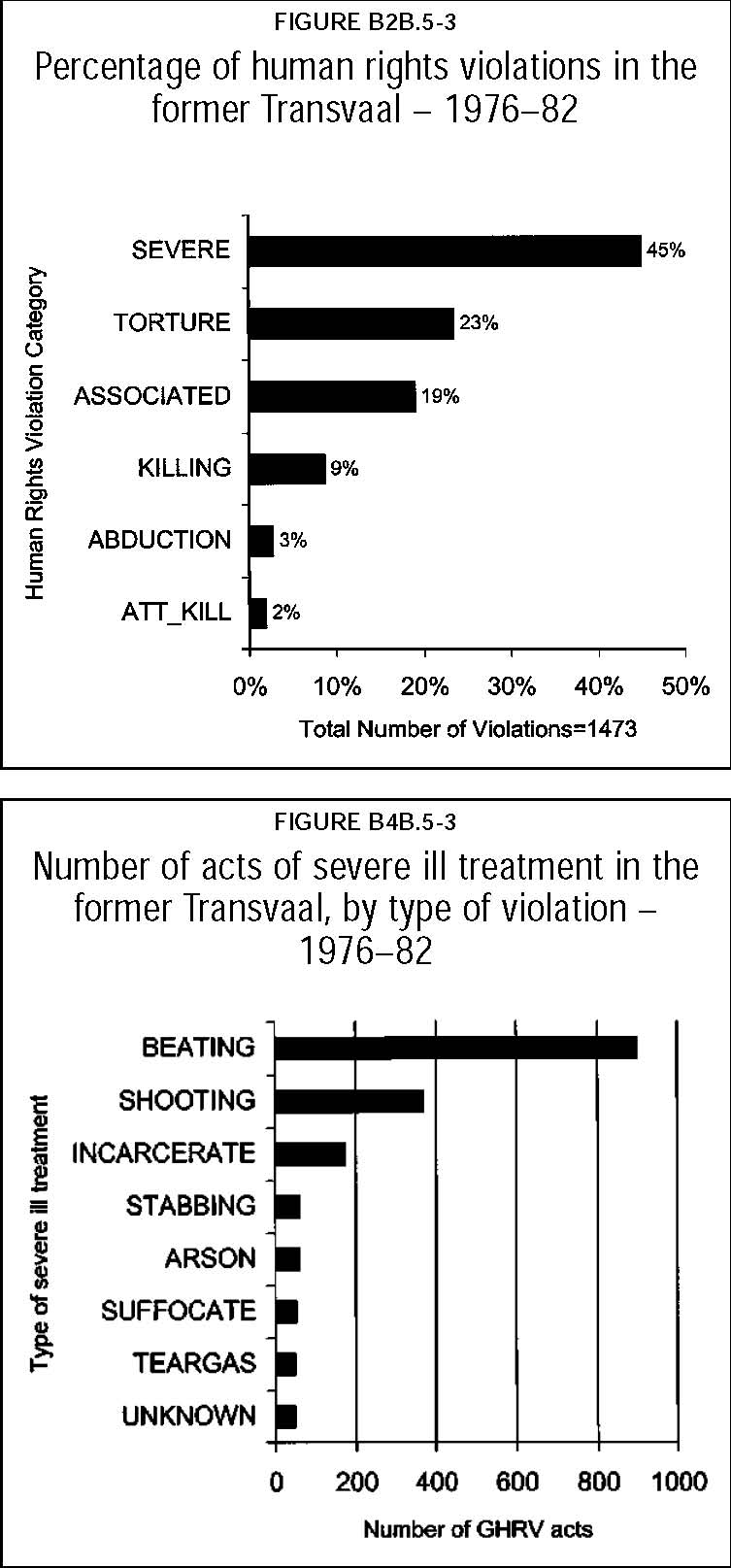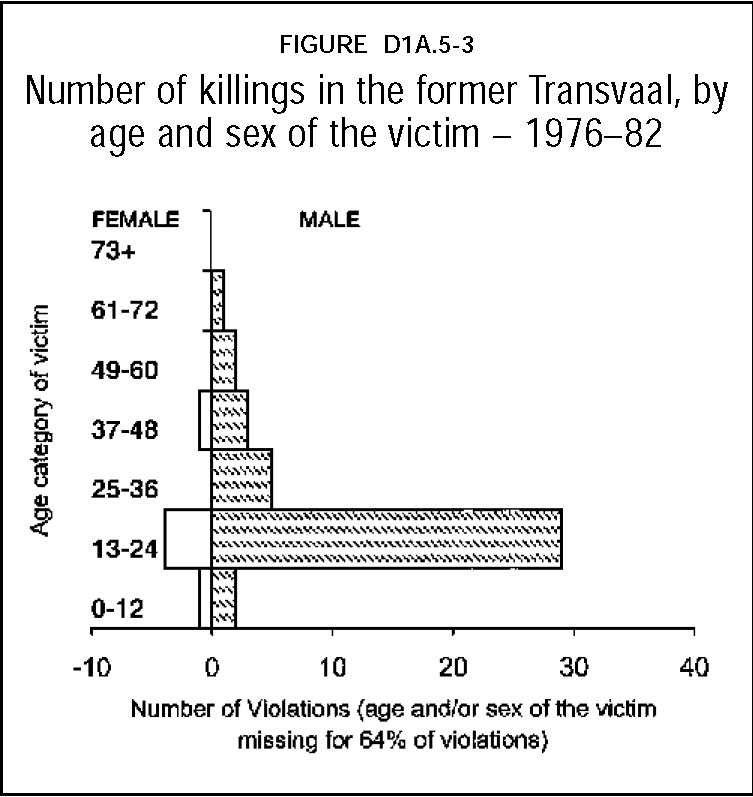 |
News | Sport | TV | Radio | Education | TV Licenses | Contact Us |
 |
News | Sport | TV | Radio | Education | TV Licenses | Contact Us |
TRC Final ReportPage Number (Original) 556 Paragraph Numbers 113 to 118 Volume 3 Chapter 6 Subsection 15 Overview of violations113 Of the 1500 human rights violations statements received for this period (1976–82), over 400 were drawn from 1976 alone. The number of reports of severe ill treatment increase two and a half times compared to the previous period. 114 Street battles between police and protesters led to an increase in the numbers of recorded deaths and injuries. Official figures estimate the number of people who died during the course of the protests at more than 500. The Commission received approximately 130 reports of killing violations for the period 1976–82 and just over 650 incidents of severe ill treatment, the majority of which occurred through beating and shooting.  115 A breakdown of the age and sex of the victims of killing and severe ill treatment in the period 1976–82 reveals an overwhelming preponderance of male victims in the 13–24 age bracket. 116 Thousands of people were detained in the wake of the protests. In October 1977, all Black Consciousness organisations and two newspapers, The World and the Weekend World, were banned. Security personnel were given indemnity under the law, retrospective to 16 June 1976. At least eleven people died in police custody during 1976 and fourteen in 1977.  117 Approximately 340 torture violations were recorded by the Commission for this period. For the first time, torture violations were reported from the homelands, some of which were granted ‘independence’ or self-governing status during the 1970s. 118 In view of the political conflict and violence which swept the country during the two decades following the Soweto uprising, the relatively small number of submissions received for this period did not adequately convey the unprecedented significance of the event. With this in mind, the Commission convened a special hearing on the Soweto uprising. |